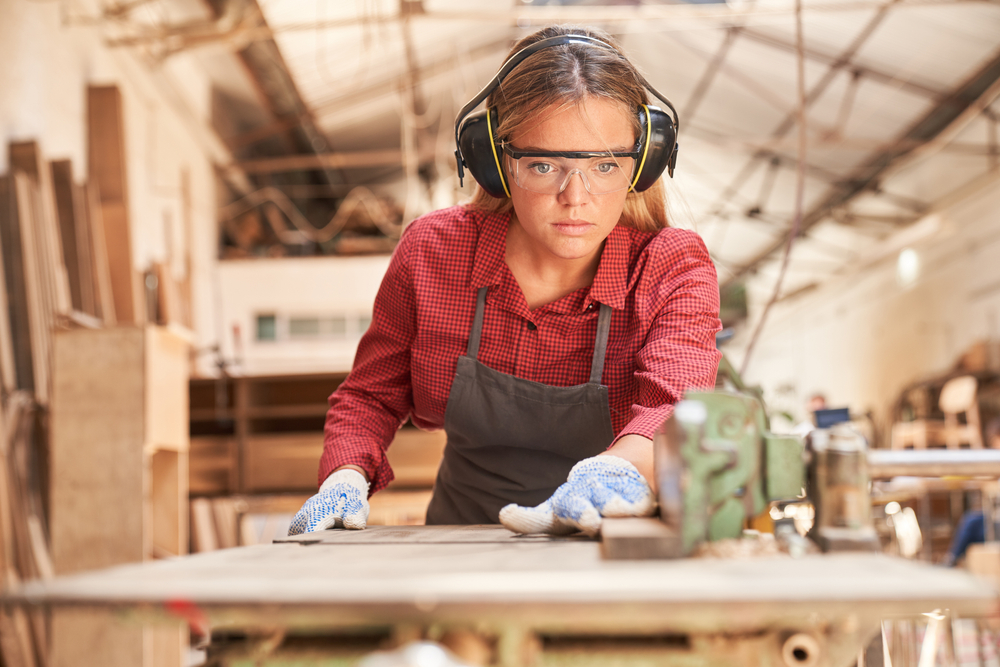
Whether you’re attending concerts, at work, or doing some yard work, hearing protection is crucial in keeping your ears safe against damaging noise levels. However, you could be left exposed to possible risks if any one of a number of potential factors interferes with your hearing protection’s effectiveness. In order to understand and effectively maximize the advantages of your ear protection, it’s crucial to understand these issues.
Common reasons why hearing protection falters
Even when you observe best practices, unforeseen difficulties can happen. You steer clear of overly loud settings as much as you can, use earplugs at concerts, and diligently use earmuffs at work. Yet, certain variables can still interfere with your hearing protection’s effectiveness. Fortunately, by recognizing these common pitfalls, you can make educated adjustments to ensure your hearing is always well-protected.
1. Choosing the wrong hearing protection for the circumstance
The effectiveness of hearing protection can be reduced by picking the wrong type for the given situation.
There are generally two main categories of hearing protection:
- Earplugs: Little, flexible inserts that seat snugly inside the ear canal.
- Earmuffs: Larger, headphone-like device that covers the whole ear.
There is an ideal type for each situation:
- Earplugs are best suited for settings with continual noise levels, including factory floors or airplane cabins.
- In settings like a construction site where noise is periodic and you may need to regularly remove your hearing protection, earmuffs are the better choice.
If you’re in a quiet setting and need to momentarily remove your hearing protection, earmuffs are easier to deal with. However, earplugs, particularly disposable ones, can be easily misplaced, leaving you exposed when noise levels spike again. Picking the right hearing protection for your needs is the first step toward safeguarding your hearing effectively.
2. Personal anatomy effects fit and effectiveness
Some devices will fit better than others based on the size and shape of the person’s ears. Standard earplugs and earmuffs are usually designed with average dimensions in mind, but your ear anatomy might require a more customized solution.
- Smaller ear canals: If you have narrow ear canals, standard-sized earplugs may not create a proper seal, decreasing their noise-blocking abilities.
- Larger ear structures: Earmuffs could be uncomfortable if your ears are bigger than average creating gaps in the seal.
Poorly fitting hearing protection can lead to frustration and a temptation to discontinue their use altogether, putting your hearing at risk. Think about opting for custom-fitted earplugs or professionally fitted earmuffs if you spend a great deal of time in loud settings. These tailored solutions provide optimal comfort and effectiveness, ensuring you stay protected in any scenario.
3. Failing to maintain or replace hearing protection
In order to remain effective, hearing protection devices need to be properly maintained just like any other devices do. Their ability to supply sufficient protection can be jeopardized by things like improper cleaning, wear and tear, and failure to replace them when needed.
Here’s how to maintain your hearing protection:
- Replace Cushions: Over time, earmuff cushions can lose their pliability. Replace them when necessary to maintain a tight seal.
- Clean Properly: Debris and earwax can accumulate on your hearing protection over time. Wash them regularly using manufacturer-recommended methods to ensure cleanliness without damaging the material.
- Inspect for Damage: Inspect the elastic band on earmuffs frequently. A slack or stretched band can reduce their snug fit, lowering their noise-blocking capacity.
Disregarding these simple maintenance tasks can render your hearing protection less effective or even unusable. In order to ensure consistent and effective performance, and to extend their lifespan, it’s essential to keep these regular maintenance schedules.
The advantage of a hearing specialist
If you’re uncertain whether your hearing protection is getting the job done, schedule an assessment appointment with us. We can check your present devices, suggest alternatives, and even offer custom solutions tailored to your particular requirements.
Keeping your hearing safe is a commitment that lasts a lifetime and it’s essential that you do it with the best tools. You can protect and preserve your hearing for many years by addressing these common challenges.